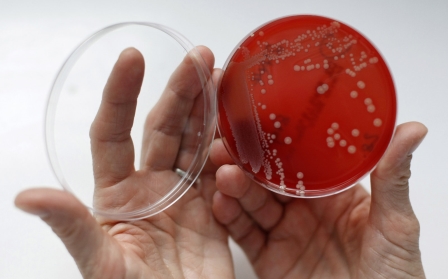Artificial molecules fight drug-resistant ‘superbugs’
Scientists are clearly picking up the pace in their quest to kill antibiotic-resistant “superbugs.” Teams at the Universty of Melbourne and UT Southwestern Medical Center have developed composite molecules that overcome the defenses of stubborn bacteria, promising treatment for illnesses that have built up their immunity over the years.
The University of Melbourne solution uses star-shaped peptide polymers, or short protein chains, to directly destroy bacteria through techniques such as ‘ripping apart’ the cell wall. The approach is not only effective, but safe: in tests involving red blood cells, it would have taken a 100 times larger dose to be toxic.
At UTSW, researchers used PPMO compound molecules (peptide-conjugated phosphorodiamidate morpholino oligomers) to block a bacterial pump that kicks out antibiotics. They imitate DNA or RNA, binding to a key genetic sequence in the bacteria and preventing it from building proteins. The PPMO approach isn’t a solution by itself, but it renders bacteria vulnerable to antibiotics that were previously ineffective — even for medicine that never worked before.
In both cases, the universities have a lot of refinement to do. They need to both progress toward human trials and see if their approaches work on a wide variety of bacteria, not just those in the early experiments. If these molecules prove to be reliable, though, they could give hospitals a much-needed reprieve when fighting MRSA and other resistant illnesses. Your doctor could either use a one-two combo treatment to defeat bacteria or skip antibiotics entirely.
(18)




